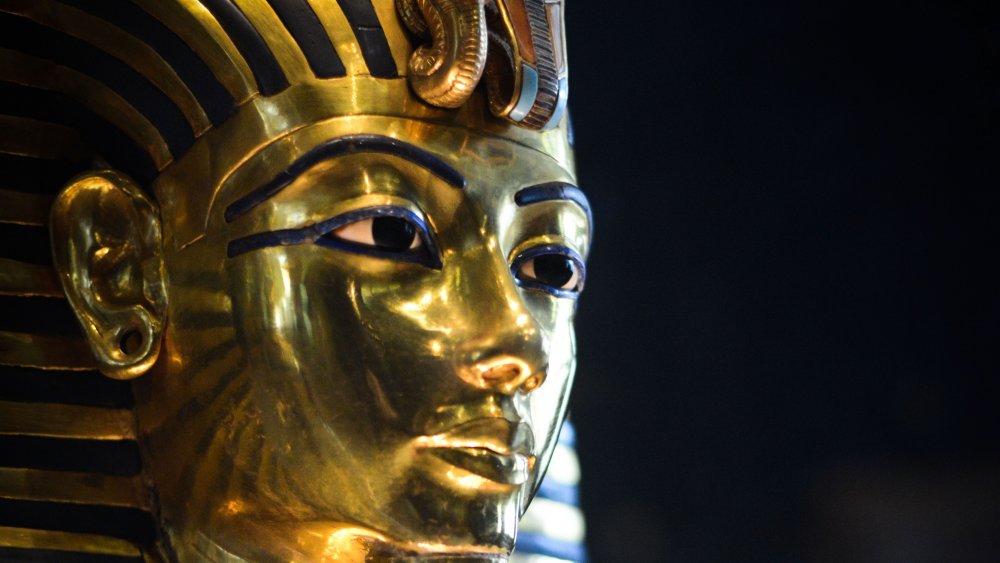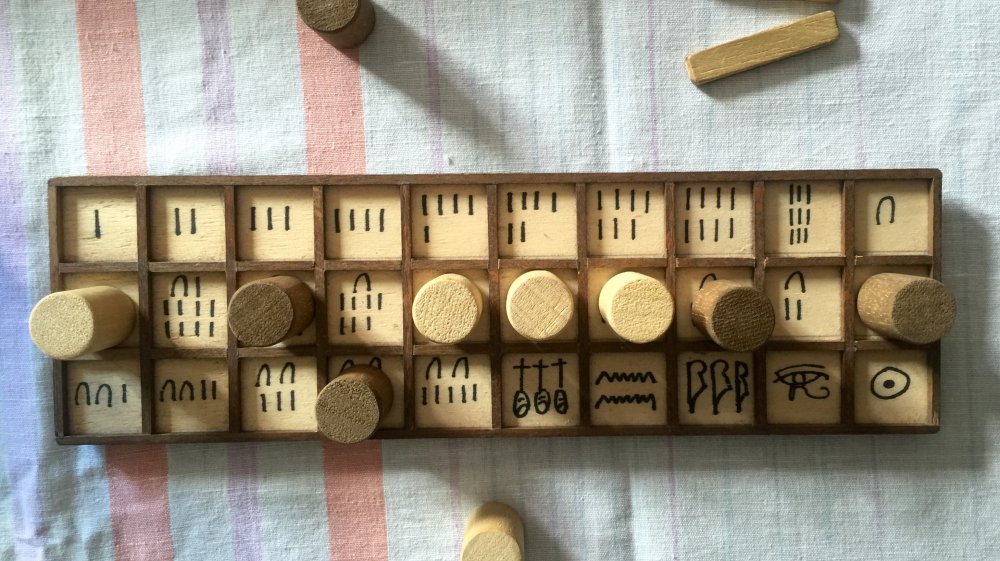The Ancient Board Game That Was Found In King Tut's Tomb
In the Spring of 2020, the citizens of this fair planet found themselves in an unenviable position: humans had, collectively, run out of board games that didn't make them want to kill each other. Rounds of Risk ended invariably with one person stuck in Greenland, while the other amassed an unbreakable wall of troops around their shattered kingdom. Clue just put a lot of dark ideas in everybody's heads. The very mention of Monopoly was, in some of the less civilized parts of Idaho, punishable by death.
In dark times such as these, humans must turn to those that came before, and miraculously, there exists a game which held human interest for thousands of years: Senet, the "game of passing."
Senet's game board and pieces have been found in the tombs of Egyptian pharaohs, and evidence of its place in human history dates back all the way to 3300 B.C., according to Science Magazine. Perhaps in this, humanity's most boring hour, the light of senet may shine from across the eons, and keep everybody occupied for a couple of hours ... if anyone can just figure out where the rule book went?
Dibs on the thimble
Sadly, the rules of senet have been lost to the aeons. Here's what has been determined: The board was made up of 30 squares. Players were likely tasked with moving their pieces from the upper left corner to the bottom right, throwing marked sticks to determine their moves. Different spaces on the board came with different bonuses and hazards, and players could strategically block or undo their opponents moves. Probably. You try piecing together a 5000 year old copy of Axis and Allies based on context clues.
According to the Metropolitan Museum of Art, senet's widespread popularity and astonishing longevity seems to have landed it a place as a religious symbol, with ancient Egyptians viewing the game's movements as symbolic of the ritualistic path to the afterlife.
Fun fact: the allegedly cursed tomb of King Tutankhamun was robbed at least twice in a series of elaborate ancient heists. While the details of the perpetrators' identities have been lost to time, it seems that they didn't bother to steal the boy king's collection of five copies of this once-popular board game, leading many in the archaeological community to believe that the robbers weren't a bunch of nerds.

